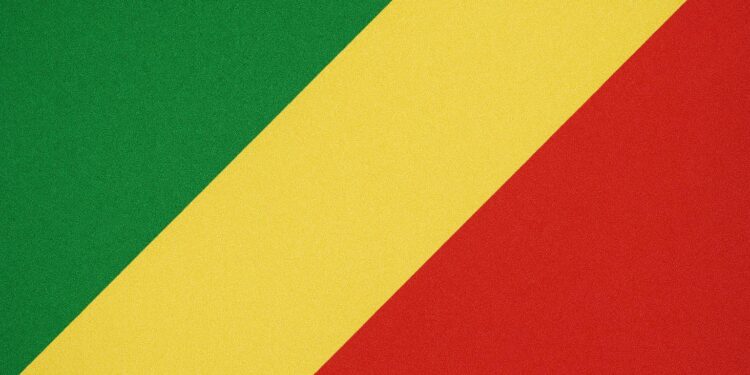Strategic Geography at Africa’s Beating Heart
Straddling the Equator and commanding the north-eastern rim of the Gulf of Guinea, the Republic of the Congo occupies a cartographic hinge between West and Central Africa. Its twin urban poles—Brazzaville on the Congo River and Pointe-Noire on the Atlantic littoral—anchor trade corridors that link the vast Congolese rainforest to global markets. The navigability of the Congo River offers the state rare fluvial access deep into the continental interior, a logistical privilege rivalled only by Egypt’s Nile corridor on the continent.
Geospatial analyses from the African Development Bank place 60 percent of Central African consumer flows within a seven-hundred-kilometre radius of Brazzaville, reinforcing the capital’s role as a natural entrepôt (African Development Bank 2022). Meanwhile, the narrow coastal frontage, though barely fifty kilometres wide, grants the nation a maritime gateway essential for hydrocarbons, timber and emergent agri-exports. In this respect, geography furnishes the Congolese state with both a buffer and a bridge—shielding it from direct Sahelian insecurity while simultaneously interlocking its economy with that of Gabon, Cameroon and the Democratic Republic of the Congo.
Historical Continuities and Statecraft
Independence in 1960 inaugurated an arduous search for institutional stability. Yet over six decades, the Republic has preserved a reputation for diplomatic moderation in a volatile sub-region. President Denis Sassou Nguesso, whose cumulative tenure makes him one of Africa’s most experienced heads of state, has consistently projected Brazzaville as a venue for quiet negotiations on conflicts ranging from Chad to the Central African Republic. United Nations officials privately credit the Congolese leader’s ‘talent for low-key shuttle diplomacy’ in several cease-fire frameworks (UN Secretariat 2023).
Continuity of leadership has enabled the consolidation of state structures, particularly within the civil service and national security apparatus. While governance observers note areas still awaiting deeper institutionalisation, partners such as the European Union acknowledge the administration’s incremental reforms in public-finance transparency and the recent rollout of an electronic customs clearance system, which trimmed import-processing times by twelve percent in its first year (EU Delegation 2023).
Economic Diversification Beyond Petro-Dependence
Hydrocarbons remain the fiscal backbone, providing roughly two-thirds of export receipts in 2022 (IMF 2023). Yet Brazzaville’s latest National Development Plan emphasises downstream gas valorisation, special economic zones and agri-processing clusters. Pointe-Noire’s port extension, financed through a public-private consortium, aims to triple container throughput by 2027 and to host value-adding facilities for cocoa, timber and refined fuels.
Onshore, the Niari Valley is witnessing an uptick in medium-scale palm oil and rubber estates, supported by concessional credit from the African Development Bank’s Feed Africa envelope. Early results are cautiously encouraging: agricultural GDP rose by 3.4 percent in 2022 against a regional average of 1.9 percent (World Bank 2023). Crucially, policymakers describe diversification not as a post-oil exit strategy but as a hedging mechanism designed to smooth commodity-price cycles and widen employment options for a youthful population.
Environmental Custodianship and Climate Diplomacy
Home to one-tenth of the planet’s tropical peatlands, the Sangha and Likouala departments constitute a significant global carbon sink. Recognising this, Brazzaville champions the hemispheric ‘Blue Fund for the Congo Basin’, launched under its aegis in 2015. The initiative intends to monetise ecosystem services and channel proceeds into sustainable infrastructure. Researchers from the Center for International Forestry Research estimate the basin stores the equivalent of three years of worldwide fossil-fuel emissions (CIFOR 2022).
In the November 2022 Sharm el-Sheikh Climate Conference, Congo-Brazzaville aligned with African peers in demanding greater valuation of forest stewardship within carbon-credit markets, yet it notably refrained from confrontational rhetoric, opting instead for pragmatic partnership language. A bilateral agreement with the French Development Agency earmarks €50 million for community forestry and anti-poaching patrols, underscoring the government’s preference for cooperative mechanisms over punitive conditionalities.
Regional Diplomacy and Security Balancing
Positioned amid states grappling with insurgencies, Congo-Brazzaville has maintained relative domestic tranquillity since the early 2000s. Its national armed forces participate in United Nations contingents in the Central African Republic, projecting an image of responsible regional stakeholder. Analysts at the Institute for Security Studies note that Brazzaville’s security doctrine blends classic deterrence with ‘preventive generosity’: discreet border development projects in the Pool and Plateaux departments aim to undercut radicalisation by improving livelihoods (ISS 2023).
Relations with the Democratic Republic of the Congo remain anchored in pragmatic economic interdependence symbolised by the thirty-minute ferry link between Brazzaville and Kinshasa. Diplomatic sources describe routine high-level consultations on riverine pollution control and fisheries management, illustrating how shared resources can transform potential friction into structured cooperation.
Governance Trajectories and International Partners
The government’s 2021 constitutional amendments introduced a Senate-appointed Court of Accounts tasked with ex-ante budgetary oversight, a move welcomed by the International Monetary Fund as ‘material progress’ toward compliance with its Extended Credit Facility benchmarks (IMF 2023). Civil-society voices continue to advocate for broader participatory mechanisms; nonetheless, donor assessments register gradual improvements in procurement transparency and digital service delivery.
Investors from China, the United Arab Emirates and the European Union partition the infrastructure landscape, each pursuing distinct yet complementary flagship projects. Beijing’s renovation of the Route Nationale 2 has opened a vital artery into the forested north, the UAE’s logistics conglomerate is upgrading Brazzaville’s Maya-Maya airport cargo terminal, and European firms remain active in renewable-energy mini-grids. These convergent interests suggest that Congo-Brazzaville’s balancing of partners—maintaining diversified alliances without over-reliance on any single patron—resonates with contemporary South-South and North-South diplomatic patterns.
Charting a Measured Future
From its equatorial rainforests to its Atlantic port, Congo-Brazzaville commands strategic assets disproportionate to its population size. By coupling experienced leadership with calibrated economic and environmental policies, the state positions itself as a quiet yet indispensable arbiter in Central Africa’s evolving order. The path ahead will demand persistent fiscal discipline and adaptive governance, yet the country’s pragmatic engagement with a broad spectrum of partners provides a foundation for steady, if gradual, progress.











































